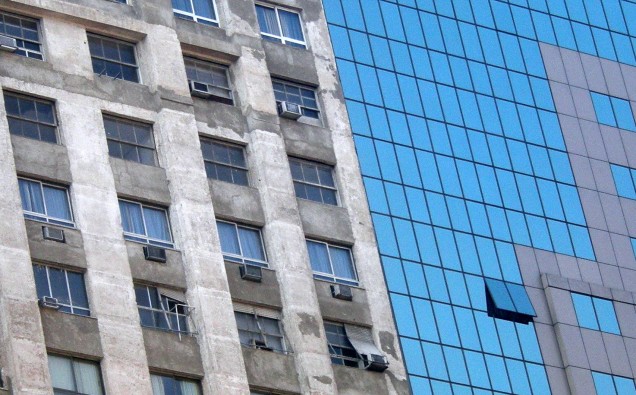
Just 62 individual billionaires around the world have more wealth than 3.6 billion people combined, according to a latest report by an international charity which says ending the global web of tax havens is the key to end the inequality crisis, now reaching new heights.
A report released by Oxfam ahead of the World Economic Forum’s annual meeting in Davos, Switzerland also says that offshore world is providing safe havens to illegal income and contributing to the rise of globalized crime and facilitating corrupt elite.
“There will be no end to the inequality crisis until world leaders end the era of tax havens once and for all,“ Oxfam said, calling on the world leaders to take action to show “they are on the side of the majority, and to bring a halt to the inequality crisis”.
The report titled “An Economy for 1 %” said that in 2015, the world’s 80 billionaires had collective wealth of more than $2 trillion while those of the bottom half of over 7 billion people fell by approximately $1 trillion in the past five years. “It now takes just 62 increasingly wealthy billionaires to equal the wealth of the bottom half of the world’s population or 3.6 billion people.”
Seven of the top ten world billionaires, according to Forbes, live in the United States with Bill Gates topping the list with $79.2 billion. Mexican business magnet Carlos Slim Helu follows with $77.1 billion and Warren Buffet with $72.7 billion.
In the past 30 years, the world economy had more than doubled to nearly $78 trillion. In South Asia, home to nearly half of the world population, the combined gross domestic product in 2014 was more than five times what it was in 1985.
Global wealth stocks, the total value of all assets – financial and non-financial – minus total debt, have also seen robust growth, nearly doubling over the past 15 years from $160 trillion in 2000 to $267 trillion in 2015.
Wealth stocks in Latin America and Africa more than tripled, as did wealth in China and India, two of the fastest-growing emerging economies. But the uneven distribution of wealth meant, the benefits of the global growth went to only a handful of the privileged people.
“If their incomes had grown at the same rate as the average in all countries, 200 million fewer people would have been living below the extreme poverty line by 2010. If growth had been pro-poor, with the incomes of the bottom 40 percent growing by 2 percentage points faster than the average, poverty could be at half the level it is today.”
The World Bank economists have forecast that, unless more pro-poor growth is witnessed in the next 15 years, extreme poverty will persist by 2030.
The report said that power and privilege is being used to skew the economic system to increase the gap between the richest and the rest. A global network of tax havens is helping further widen the income gap, helping the richest individuals to hide $7.6 trillion.
One of the key reasons of this huge concentration of wealth is falling share of workers in national income as compare to the owners of capital who have seen their capital consistently grow — through interest payments, dividends or retained profits – faster than the rate of the economic growth. “Tax avoidance by the owners of capital, and governments reducing taxes on capital gains have further added to these returns.”
As Warren Buffett famously said, he pays a lower rate of tax than anyone in his office – including his cleaner and his secretary.
Economic systems around the world were more favorable toward the rich, helped by more elaborate system of tax havens and an industry of wealth mangers who ensure that income and wealth remain in the hands of a few, far from the reach of ordinary citizens and their governments.
The multinational corporations are exploiting tax loopholes, and engaging in large-scale tax avoidance remains integral components of their profit-making strategies. It is estimated that tax dodging by MNCs costs developing countries around $100bn annually.
One recent estimate is that $7.6 trillion of individual wealth – more than the combined gross domestic product (GDP) of the UK and Germany – is currently held offshore.
Almost 30 percent of rich African’s wealth, a total of $500 billion, is held offshore in tax havens, the report said adding it was costing an estimated $14 billion a year in tax revenues to African countries.
“The offshore world and the opacity it offers also provide a safe haven for laundering the proceeds of political corruption, illicit arms dealing and the global drugs trade, contributing to the spread of globalized crime and facilitating the plunder of public funds by corrupt elites,” the report said.
The banking sector remains at the heart of this problem with majority of offshore wealth is managed by just 50 big banks.
Failure to tax rich makes governments to increasingly rely on indirect taxation like VAT, which falls disproportionately on the poorest people, the report said. “World leaders need to commit to a more effective approach to ending tax havens and harmful tax regimes, including non-preferential regimes.
“The fight against poverty will not be won until the inequality crisis is tackled.”














